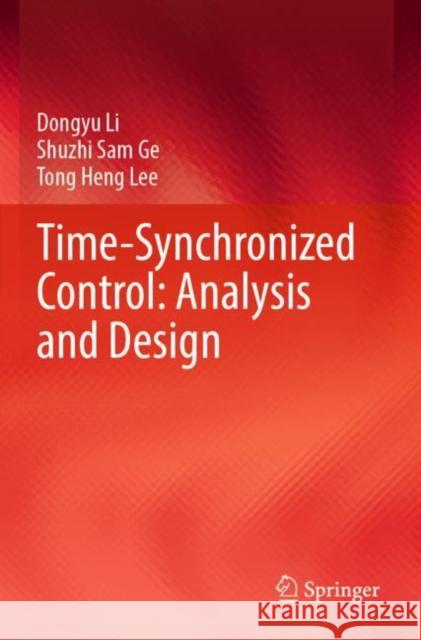Time-Synchronized Control: Analysis and Design » książka
Time-Synchronized Control: Analysis and Design
ISBN-13: 9789811630910 / Angielski / Miękka / 2023 / 253 str.
Time-Synchronized Control: Analysis and Design
ISBN-13: 9789811630910 / Angielski / Miękka / 2023 / 253 str.
(netto: 575,06 VAT: 5%)
Najniższa cena z 30 dni: 578,30
ok. 16-18 dni roboczych.
Darmowa dostawa!
Previous research on fixed/finite-time sliding-mode control focuses on forcing a system state (vector) to converge within a certain time moment, regardless of how each state element converges. This book introduces a control problem with unique finite/fixed-time stability considerations, namely time-synchronized stability, where at the same time, all the system state elements converge to the origin, and fixed-time-synchronized stability, where the upper bound of the synchronized settling time is invariant with any initial state. Accordingly, sufficient conditions for (fixed-) time-synchronized stability are presented. These stability formulations grant essentially advantageous performance when a control system (with diversified subsystems) is expected to accomplish multiple actions synchronously, e.g., grasping with a robotic hand, multi-agent simultaneous cooperation, etc. Further, the analytical solution of a (fixed) time-synchronized stable system is obtained and discussed. Applications to linear systems, disturbed nonlinear systems, and network systems are provided. In addition, comparisons with traditional fixed/finite-time sliding mode control are suitably detailed to showcase the full power of (fixed-) time-synchronized control.
Previous research on fixed/finite-time sliding-mode control focuses on forcing a system state (vector) to converge within a certain time moment, regardless of how each state element converges. This book introduces a control problem with unique finite/fixed-time stability considerations, namely time-synchronized stability, where at the same time, all the system state elements converge to the origin, and fixed-time-synchronized stability, where the upper bound of the synchronized settling time is invariant with any initial state. Accordingly, sufficient conditions for (fixed-) time-synchronized stability are presented. These stability formulations grant essentially advantageous performance when a control system (with diversified subsystems) is expected to accomplish multiple actions synchronously, e.g., grasping with a robotic hand, multi-agent simultaneous cooperation, etc. Further, the analytical solution of a (fixed) time-synchronized stable system is obtained and discussed. Applications to linear systems, disturbed nonlinear systems, and network systems are provided. In addition, comparisons with traditional fixed/finite-time sliding mode control are suitably detailed to showcase the full power of (fixed-) time-synchronized control.











